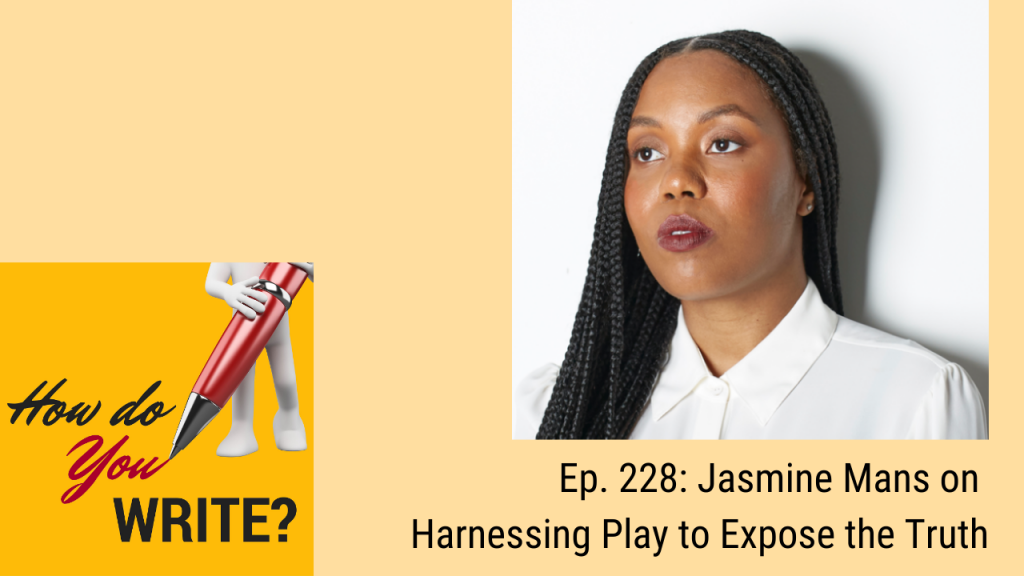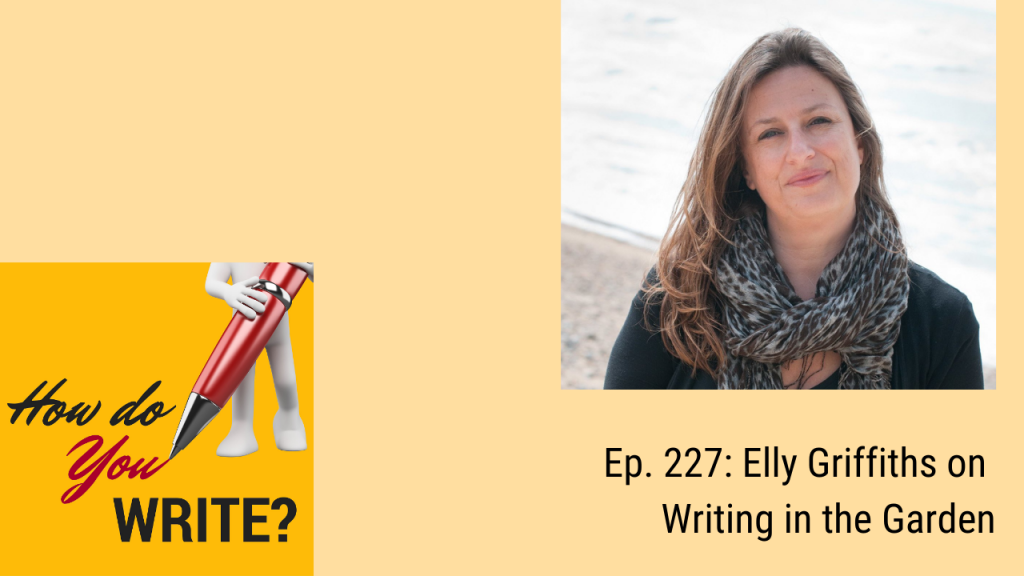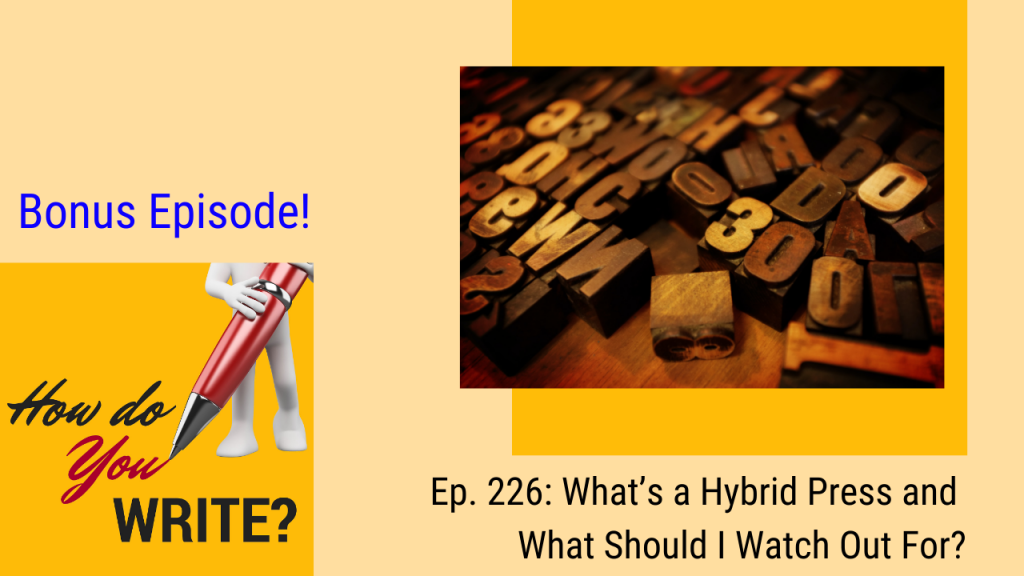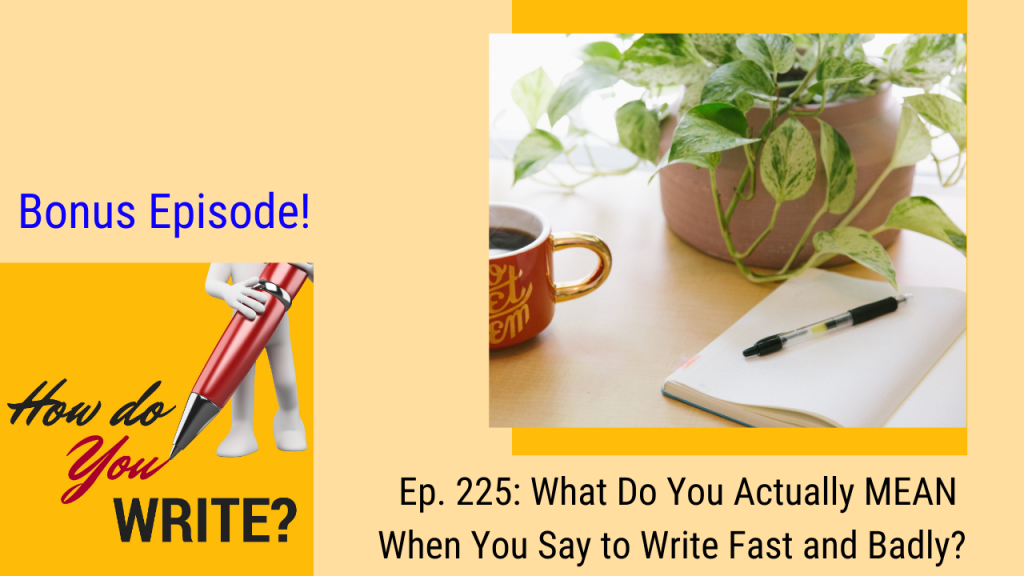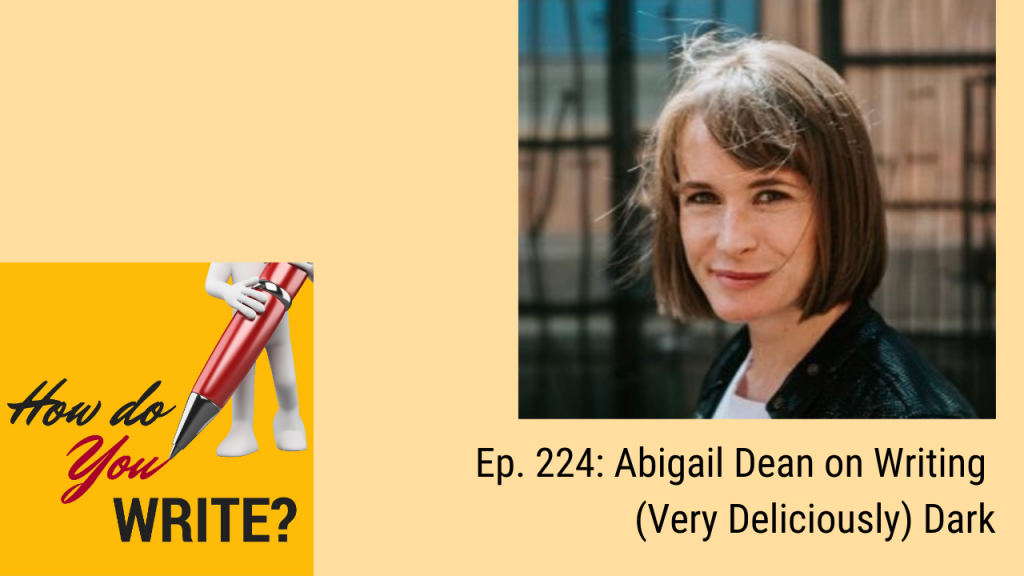Chang-rae Lee is the author of Native Speaker, winner of the Hemingway Foundation/PEN Award for first fiction, as well as On Such a Full Sea, A Gesture Life, Aloft, and The Surrendered, winner of the Dayton Peace Prize and a finalist for the Pulitzer Prize. My Year Abroad is his new novel.
How Do You Write Podcast: Explore the processes of working writers with bestselling author Rachael Herron. Want tips on how to write the book you long to finish? Here you’ll gain insight from other writers on how to get in the chair, tricks to stay in it, and inspiration to get your own words flowing.
Join Rachael’s Slack channel, Onward Writers!
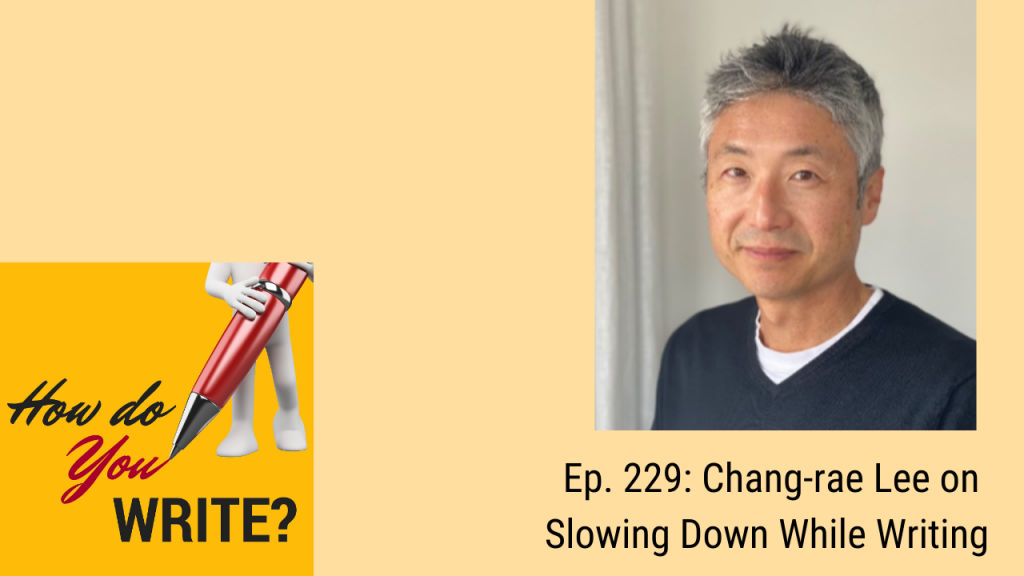
Transcript:
Rachael Herron: [00:00:00] Welcome to “How do you Write?” I’m your host, Rachael Herron. On this podcast, I talk to authors about how they write, what their process is and how their lives fit together. I’ll keep each episode short so you can get back to writing.
[00:00:16] Well, Hello writers! Welcome to episode #229 of “How do you Write?” I’m Rachael Herron. So thrilled that you’re here with me today, as I record on March 19th, 2021. And today I’m talking to Chang-rae Lee. Right? How exciting is that I, this interview was awesome, so enjoyable, and it was an honor to speak to him. So, we talked a little bit about slowing down while writing. I know that you’re going to enjoy the interview. Please stay on the edge of your seat for that. Before we get into that, though, what is going on around here? Well, I guess in the biggest news I got my vaccine, which is incredible. I am so happy that I was able to get it. I got the Johnson & Johnson one shot and oh my God, did I get sick. Oh wow! I have one of my body issues is a, an over-reactive immune system and it overreacted. But honestly, it only lasted like 30 hours and it was like having a very, very terrible flu, which is nothing compared to COVID. So it was such an interesting feeling to be that sick and that miserable and that happy and grateful at the same time. I’ve never been thrilled to feel like I have the flu, you know, 102, 103 fever, chills, body aches. And I was like, yes, ride this, this is amazing! Thank you shot. So I’m really, really happy about that. Lala does not have hers yet. Hopefully she will be able to get hers pretty soon. [00:02:02] It’d be wonderful if the both of us were and could see some friends who have their vaccines in a few weeks when the inoculation actually takes effect because they don’t, they didn’t tell me this onsite when I got my shot. But you’re not fully protected for a few weeks or so. So do your own research on that. I’m not going to tell you how long it takes per shot, cause I don’t know, and I would not want to get that wrong, but I am very, very happy and grateful about that. It’s, I just want everybody to get it though. Like, it’s awesome that I have it, but I don’t care. Cause I want everybody to get it. That’s the important thing. [00:02:37] What else? I am not writing this week. I have not been just well, and that’s not true. I’ve been working on the synopsis of Quincy, which I keep working on and it’s just not right yet. And to take my own advice, I’m just going to have to get it off my plate and send it to my agent, which is where it belongs. And I’m going to try to do that later today. There I set it here. Now I’m going to have to do it. But what is really going on is moving, you can hear the room is more empty now than it was even last week. And that is going a pace. I still don’t know how we’re going to get it all done. We have a moving date now. I don’t think I had this the last time I podcasted, but yeah, we got our managed isolation which is very, very hard to get. And we got it about a month before we actually had to enter on Lala’s visa into New Zealand. So the timeline has moved up yet again and now we’re leaving in approximately four months and our house is still 100% full of everything we have to sell it. We have to get rid of everything all in four months. And so we’re doing that, moving toward that. I actually really enjoy this kind of challenge. I love lists. I love doing things I love working until late at night and falling into bed, happily exhausted from having to do a lot of things. [00:04:04] Whereas, my wife is finding it more emotional. She is more of a collector of things and she got rid of, I’m going to say, more than 95% of her books and graphic novels that she has collected for the last 25, 30 years. And that was really hard for her. That was really, really a challenge. So, she’s doing great. And I wish I could make it easier for her and I will because I’m going to pack the kitchen. She won’t have to. So one of the things that I did want to mention on this show, and I haven’t mentioned it over anywhere in social media yet, but if you go to RachaelHerron.com and go to the blog, the most recent post is about our two cats, Waylon and Willie and I am not going to cry on this show. I’m not going to do any of that crap, but they’re too old to go with us. They are 14 years old. Willy has a kidney not infection, kidney problems. He has chronic kidney problems and they, it’s just not safe to travel with them. We just keep reading these terrible stories about how these cats didn’t make it. You can’t drug them on the plane. They don’t let you. So they generally just die of fright on the 17-hour flight at the shortest and then they have to do quarantine. So we cannot safely bring them and it’s breaking our hearts. They are the sweetest boys, sweetest cats that I’ve ever known. [00:05:36] The sweetest cats I’ve ever known. They were both black. Willy is long haired. Waylon is short haired, and they wrap themselves around each other all day. Every day, they have each other, they love us so much, but they have each other. So they’re just always content and happy and purring. And they’re wonderful. And I talk about them on the blog and what we are hoping is that we find somebody close to us physically. Hopefully in Northern California. So it would just be a car ride away who wants to adopt them. We are going to take care of all their medical bills till the end of their lives. So that would not be a worry. They come with a litter robot three, which is Bluetooth activated and tells you when about once a week or so you have to change the bag. No scooping of the litter. Yeah, we need to find a really good home for them because they are amazing. And Dozy, our young dog she’s five years old, so she can safely do it. She’s in getting all the shots and everything. And we have a place for her to stay while we are getting settled. And then we can send for her to come over, but we can’t take the cats. So if you’d like to, or if you know anybody in Northern California, who would like a pair of brother cats that are beyond wonderful, let me know. If no one steps forward, I do have an offer from a friend who lives in West Virginia. Wait, where does she live? I can’t remember. Maybe Virginia, Virginia. But so we could put them on a plane and get them there, but we’re hoping to avoid the plane. So if you or anyone, you know, in Northern California wants these two boys go read the blog post, it’s all about them, entails every single thing about them. And I thought I would mention it here in case, you know, anybody cause you guys know everyone. [00:07:23] And one other update, you know that I love writing my Patreon essays. I love writing them. It’s my favorite thing. I am going to pivot them and I’m going to be talking about moving to another country as an adult permanently. That’s what those essays are going to be about. I think they’re going to be really fun to write. They are going to be how I collect the chapters of a book about this move. A memoir about this move. So if you would like to be in on the ground floor and reading those essays, the first one will go out this month. I’m not sure what it’s going to be about yet, but it’s going to be about freaking out about moving, probably something along those lines. You can always go to patreon.com/Rachael (R A C H A E L). And while I’m mentioning that I wanted to thank new patron Alice Law. Alice, thank you. Thank you so much. Welcome on the ride. There are at least four dozen essays in there that y’all can get for a dollar. You can read them all and then unsubscribe that would be a lot of reading, how many thousands of words is that? I’m going to go 48. You can hear me clicking. They’re usually about 4,000 words each that’s 192,000 words that are not available anywhere else yet, because I’m still collecting them into collections of books. Someday, I will do all of the things, but until then, they’re all over there in Patreon, if you are interested. [00:08:50] And, just wanted to say a very, very big thank you for all of you who are subscribers and all of you who aren’t subscribers, who can’t be subscribers for whatever reason. I’m so grateful that you’re here and that you enjoy the show and that you leave reviews over it. iTunes that’s super, super helpful or I-podcast or whatever they call it now. I feel like one of, I feel like one of the olds talking about the Facebook, but those are great. You know, what else is great? This interview with Chang-rae Lee, please enjoy. And I wish you all very, very happy writing this week my friends. Bye. [00:10:15] Hey, is resistance keeping you from writing? Are you looking for an actual writing community in which you can make a calls and be held accountable for them? Join RachaelSaysWrite, like twice weekly, two hour writing session on zoom. You can bop in and out of the writing room as your schedule needs, but for just $39 a month, you can write up to 4 hours a week. With our wonderful little community, in which you’ll actually get to know your writing peers. We write from 8:00 AM to 10:00 AM on Tuesdays and 4:00 PM to 6:00 PM on Thursdays and that’s US Pacific Standard Time. Go to RachaelHerron.com/Write to find out more.Rachael Herron: [00:10:07] Okay. Well, I could not be more pleased to welcome to the show. Chang-rae Lee. Hello there, welcome!
Chang-rae Lee: [00:10:13] Thank you very much for having me.
Rachael Herron: [00:10:15] It’s an honor to have you, let me give you a little bit of a bio. Chang-rae Lee is the author of Native Speaker, winner of the Hemingway Foundation/PEN Award for first fiction, as well as On Such a Full Sea, A Gesture Life, Aloft, and The Surrendered, winner of the Dayton Peace Prize and a finalist for the Pulitzer Prize. My Year Abroad is his new novel. So congratulations on that amazing bio and on this new book, which I just loved.
Chang-rae Lee: [00:10:46] Thank you, Rachael.
Rachael Herron: [00:10:47] I’m so glad to get a chance to talk to you about it. Before we jump into those questions that I had your publicist send you that are my normal questions I wanted to ask really quickly. And this is purely selfish because I’m working on a novel right now that deals a lot with longing and desire and a certain kind of hunger. And I’m, you know, I’m going into revision. So I’m actually starting to think about what the book wants to be now. And I just had a curious, you know, fellow writer question, hunger is such a theme of this novel. When do you know that? That’s something that you like, you just sat down one day said I’m going to write a novel with the theme of hunger or does that come later for you?
Chang-rae Lee: [00:11:28] No, you don’t. I didn’t think that, and
Rachael Herron: [00:11:32] Oh good, that makes me feel better.
Chang-rae Lee: [00:11:35] And you know, it’s something that it’s funny because you know what it’s about, even if you don’t say it to yourself and think it to yourself. Somehow, there’s some part of you, I think that knows what it’s about. And this is what I tell my students all the time is that you have to, you obviously have a sense of the story and sense of the characters, but sometimes, and most of the time, you don’t fully appreciate why you’re interested in those characters. And it’s only in the writing of it that you begin, that it begins to become clearer. Like it’s always there. It’s always there, but it becomes clearer and clearer, clearer why you needed to write this particular story about this particular character in this particular circumstance. So for example, in this book, I thought that my interest was about the Chinese businessman named Pong, who is obviously a main, main part of this story and the person who takes the narrator on this trip and who introduces him to the world. That was my original you know, character and my original inspiration and my original excitement about, oh gosh, I want to write a story about this striver immigrant, who had so much energy, so much charisma who like, you know, it was just, you know, had delightful way of thinking about opportunity. And I thought, okay, maybe it’s a certain kind of immigrant novel that way, but the more I asked myself, well, why am I interested in this character? The more I realized that wasn’t the full story, that was part of the story, but not the full story. The full story was I’m interested in this character because I feel this kind of, I don’t know this emptiness, this void, this depletion that of spirit, that a character I’m thinking a character has and who needs inspiration, who needs to be sparked into something. And that I think in the end led me to this ultimate feeling or ultimate knowledge as I was writing him that yes, he’s, he feels empty. He feels hungry, he feels desirous, but he doesn’t really know why and so that’s that I think is an example of a good example to me in the writing process of not just jumping immediately into your inspiration. Sometimes you have to interrogate that inspiration and maybe that leads you to, so I didn’t lose Pong as a character.
Rachael Herron: [00:14:19] Not at all, yeah.
Chang-rae Lee: [00:14:20] Right, but I think I got to the core of my interest and curiosity. Which is not wholly, it, which is really about a certain kind of psyche and consciousness that is desperate for some saver of the world, some saver of his life. And then, and that led me ultimately to this young kid Tiller that narrates ‘em all.
Rachael Herron: [00:14:47] Tiller is so great. Tiller is just so, he’s a treat to be around.
Chang-rae Lee: [00:14:55] Yeah. Well he’s well, you asked the question again. There’s a lot to say about him.
Rachael Herron: [00:15:03] Well, how do you feel about the idea of this as kind of a building’s roman for
Chang-rae Lee: [00:15:09] Absolutely. It’s- you know, this is, I mean, I didn’t, again, I didn’t conceive of it this way, but it ends up this novel ends up being a lots of different kinds of novel.
Rachael Herron: [00:15:20] It really does! Yes
Chang-rae Lee: [00:15:23] You know, it’s a buildings are on for him, a coming of age, laundering novel, but it’s also, you know, where you have a young person going out in the world and figuring things out, but it’s also in some ways a midlife crisis.
[Read more…] about Ep. 229: Chang-rae Lee on Slowing Down While Writing